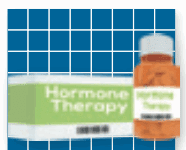For people who have a high risk of cardiovascular disease (CVD) and events such as heart attack and stroke, taking aspirin daily as a preventive measure has been commonplace. But a recent study suggests that preventive aspirin therapy may present more risks than benefits for certain groups of patients. In a large meta-analysis published in the May 30 issue of The Lancet, researchers found that while heart attack and stroke survivors who have a high risk-at least 20 percent-of a recurrent coronary event in the next 10 years benefit from taking aspirin, there did not appear to be an advantage in giving aspirin to otherwise healthy people. "Each patients risk factors, including blood pressure and lipid or cholesterol levels, diabetes, smoking, past medical history, family history of CVD and events, and bleeding risk, must be considered when deciding if preventive aspirin therapy is appropriate," says Leslie Cho, MD, director of preventive cardiology and rehabilitation at Cleveland Clinic and editor-in-chief of Heart Advisor.
To continue reading this article or issue you must be a paid subscriber.
Sign in





